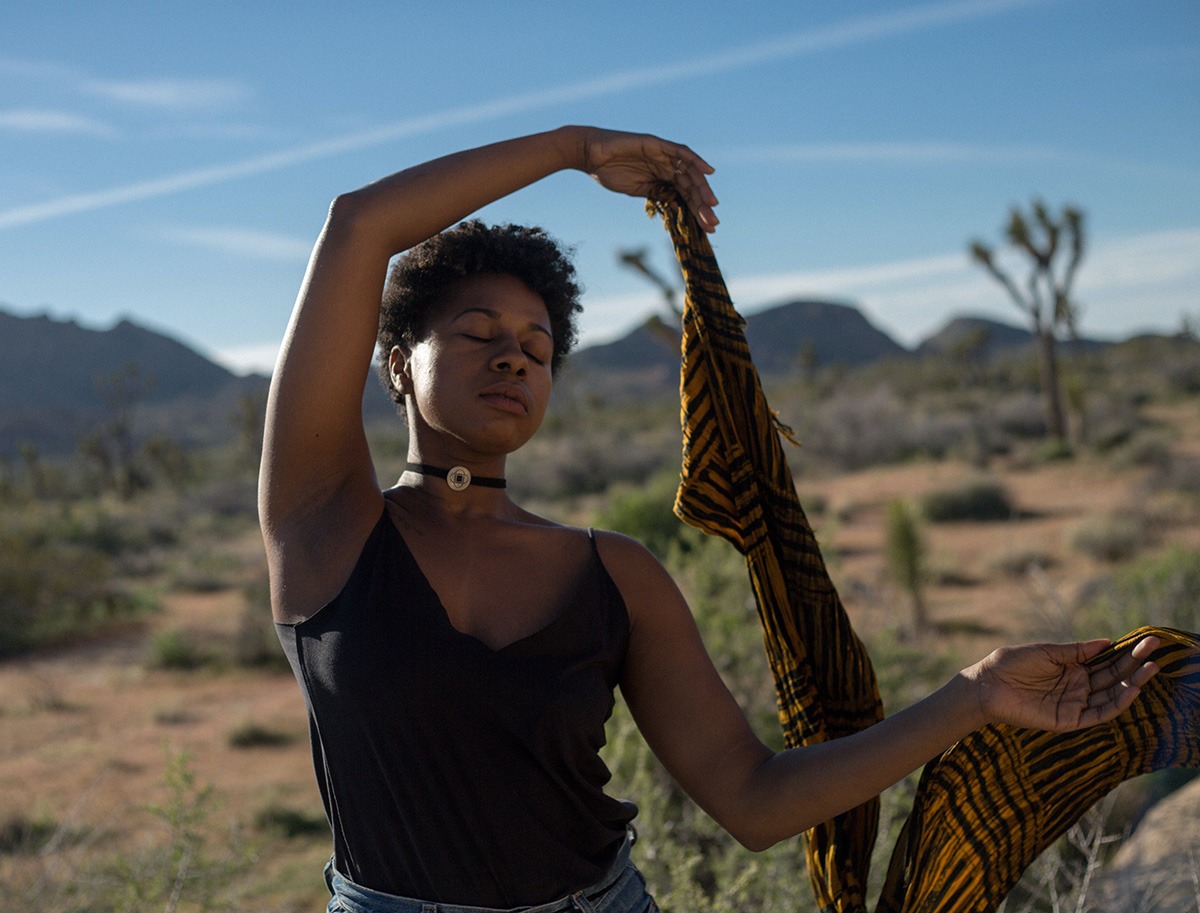Written by Kiersten Adams.
Art by Tamarcus Brown.
At the beginning of 2020 I took a trip to the Catskill mountains in upstate New York, unaware of the impact the brief excursion would have on my life and my relationship to self-care. I woke up to crisp mornings where the ground in its frosted tipped glory was coated in early March dew. I spent those days hiking through the woodlands with a girlfriend of mine, stopping to marvel at mushroom goo and small boulders meant for climbing and subsequently carving initials into (although we couldn’t bring ourselves to leave our literal mark), we had made a home in the presence of one another and the humungous pines that held onto secrets and histories alike.
Those hikes, otherwise remembered as moments of respite, took hours – from sun up to sun down we slept, crept, sang, dreamt, and meandered through the Catskill mountains, very much careless. We didn’t realize until we were on the road again, heading in the direction of familiarity and chaos that for the duration of our entire trip, neither of us checked our phones for information about work or current events. Hidden in the Catskills, slack, zoom, and teams meeting were not a priority, if a ‘thing’. We were not begrudged with deadlines or responsibilities, except for those that we made for one another. We didn’t bond over the shared trauma of being in this country as a Black woman or an afro-Latina, we simply existed alongside one another.
Driving, talking about the anxieties we shared about re-entering the world only solidified that what we needed wasn’t just a relaxing vacation, but a retreat. A time away, despite everything that grounds us to our current situations. We retreated into the mountains where our lives, to one another, mattered immensely. Where our hair both kinky and curly, braided and thick was celebrated, where our womanness didn’t intimidate, and where we couldn’t be reached by America’s nonsense. Retreat needs to be a quintessential part of every BIPOC woman’s survival.
Retreat needs to be a quintessential part of every BIPOC woman’s survival.
Exhaustion — an intersectional feeling amongst BIPOC women throughout the United States. In trying to break away from antiquated ideas around womanhood, we still find ourselves consumed by roles like nurturer, caregiver, “neck that turns the head” role in society. In this role and social structure, BIPOC women are expected to take care of everyone. Emotionally, spiritually, physically, they carry the weight of entire nations, but don’t be mistaken, they’ll never be paid equally for it. Forced to carry not only this weight, but be present at the forefront of every movement, march, debate, and conversation. This is existing in this country, expected of course to be done without any rest or mention of care. In order to maintain sanity, peace, healthy mental states, retreat is necessary.
‘Caring for myself is not self-indulgence, it is self preservation, and that is an act of political warfare.” From Audre Lorde, integrating the idea of political rest within the idea of retreat is essential to having a solid foundation. Centered on stepping away from that which has us focused on everything but self, retreat is about leaving behind anxieties in order to heal. With politics and production culture threatening BIPOC lives consistently, where is the time for respite to do nothing. There aren’t many opportunities where BIPOC women are allotted the time nor the convenience of doing nothing when forcibly made to produce and lead.The expectancy is to be on. Ready and activated for… everything. Retreat allows us to turn off that feeling. Doing nothing, making rest a priority, and taking up space to enjoy the time where expectancy fades away. More so it is a revolutionary act of much-needed self-preservation.
Finding retreat, make no mistake, is not to be taken at the helm of the literal sense. Retreat doesn’t need to be buying into expensive experiences in a mud mask and white robes. Retreat is defined by individual pleasure and joy. A difficult task, rest isn’t always readily available, but efforts have to be made in order to uphold self-retreating “Thee notion of rest, it’s attractive to her, but I don’t think she would like it. They are all like that, these women. Waiting for ease, the space that need not be filled with anything other than the drift of their own thoughts. But they wouldn’t like it. They are busy and thinking of ways to be busier because such a space of nothing pressing to do would knock them down.” Toni Morrison says in Jazz. Ringing true still, rest must be fought for and spent earnestly in retreat.
We deserve rest — we deserve to turn our attitudes and attention to satisfying our needs through time alone or with a welcome community. Retreat is returning a sense of self peace and pleasure. Whether through running away to the hinterlands, escaping responsibility, or just turning off your phone. Be it something that brings you closer to nature or attuned to yourself, tuned out from the noise. Make retreat your own and practice it religiously. With vigor make it a practice and labor of love. Find your time to recharge to face the world. When they go and get tough, don’t always fight, escape. Retreat.
About the Author
Kiersten Adams is a writer, journalist, and space/time enthusiast looking to re-shape the framework around Black bodies, consciousness, and lives. Based in Philadelphia, Kiersten can be found playing with her cats or snagging books from local free libraries.
Follow on IG: @#KierstenAdams | Follow on Twitter: @

